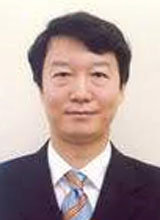New challenge for humanity
New challenge for humanity
Posted March. 29, 2021 07:25,
Updated March. 29, 2021 07:25


“The Stone Age didn’t end for lack of stone, and the Oil Age will end long before the world runs out of oil,” Former Saudi Arabian Oil Minister Ahmed Zaki Yamani said in an interview with British newspaper “The Telegraph” in June 2000, although it was mentioned by other newspapers including “The Economist”. Yamani might not be the first person to say the phrase, but it was surely Yamani who made it popular.
His words struck a chord with many people who were interested in the relationship between the elite and Russia’s energy industry, which was struggling in a whirlwind of confusion following the dissolution of the Soviet Union, and the impact of their responses on the international system.
His statement is meaningful not only because it recognized the potential of alternative energy sources that can replace oil such as renewable energy but also because it showed not every member of the elite from oil producing countries is short-sighted and had their eyes solely on resources. It also implied that the future of oil producers did not entirely depend on resources and could change depending on what strategy they adopted.
Disproportionate force or influence of any material cannot last forever. COVID-19, natural disasters of the past, and changes triggered by new technology and knowledge have taught us the importance of preparing for an unexpected shift. Today, the humanity faces a decline in oil-based civilization, not the depletion of oil. At a time when the digital revolution and the ESG are considered more important than ever, resource producers and consumers are faced with a new challenge. With both expected and unexpected challenges being thrown at us, we should look at the big picture and devise strategies to rise to such challenges.



![“잠만 자면 입이 바싹바싹”…잠들기 전에 이것 체크해야 [알쓸톡]](https://dimg.donga.com/c/138/175/90/1/wps/NEWS/IMAGE/2026/02/23/133404749.3.jpg)



